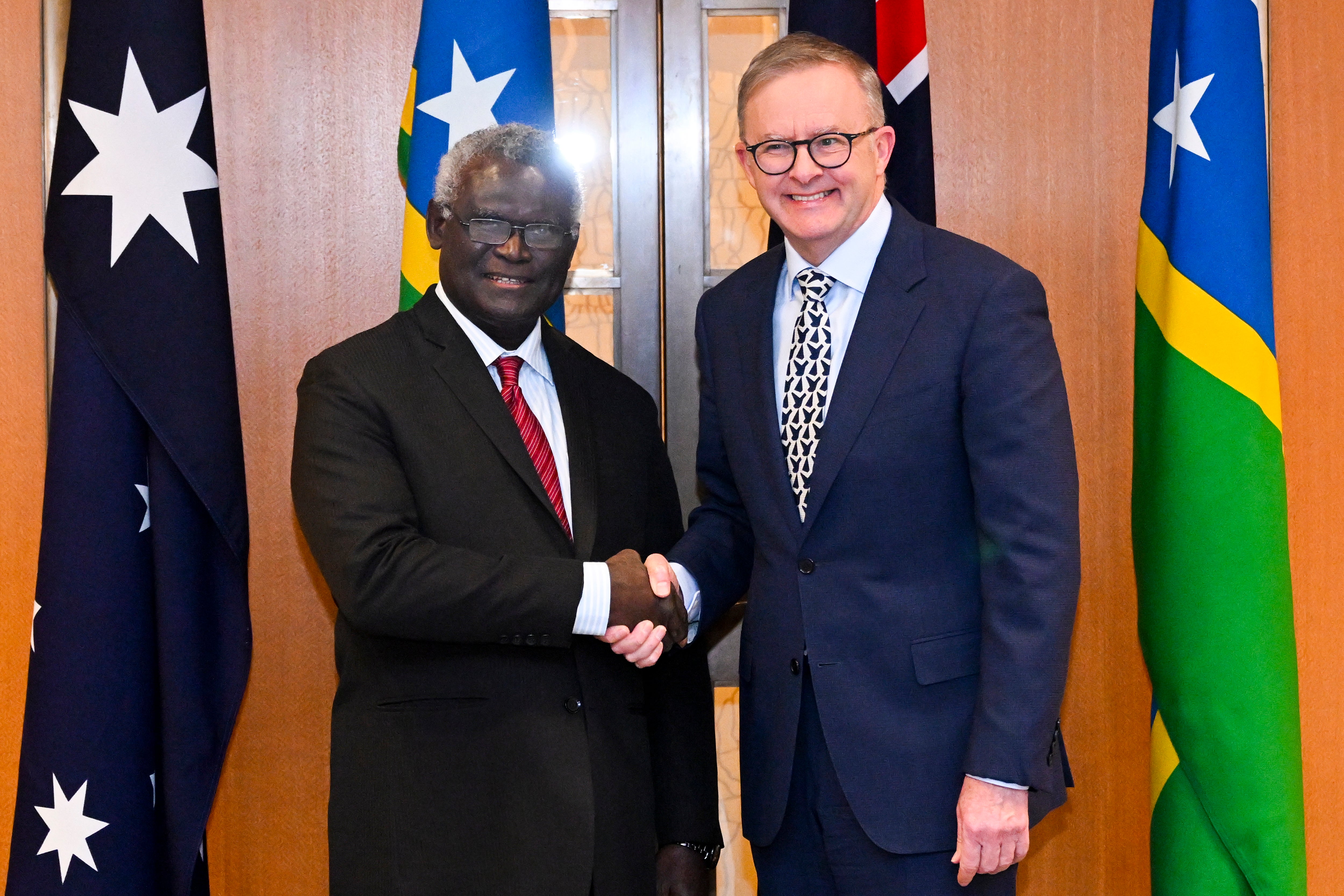Solomon Islands leader rules out China base in his country
The Solomon Islands prime minister has assured Australia that he would not “endanger his country” by allowing China to establish a naval base in the South Pacific

The Solomon Islands prime minister assured Australia on Thursday that he would not “endanger his country” by allowing China to establish a naval base in the South Pacific.
Solomons Prime Minister Manasseh Sogavare made his first visit to the Australian capital Canberra since his counterpart Anthony Albanese’s center-left Labor Party came to power at elections in May.
“Prime minister, I reiterate again that Solomon Islands will never be used for foreign military installations or institutions of foreign countries, because this will not be in the interest of Solomon Islands and its people,” Sogavare told Albanese in front of reporters before their meeting began in Parliament House.
A bilateral security agreement between China and the Solomons signed early this year raised concerns of a Chinese naval base being established in the South Pacific. China has denied seeking a military foothold in the Solomons.
“My government’s legacy is to safeguard the future of Solomon Islands and its people, and not to endanger the country and its citizens or the security of any forum country,” Sogavare added, referring to the Pacific Islands Forum, a bloc of 18 regional neighbors that includes Australia.
The pair released a joint statement after their meeting rather than hold a customary joint press conference. The leaders “reaffirmed mutual security commitments and the Pacific family first approach to regional peace and security,” the statement said.
Australia wants the Solomons to turn to its neighbors to support its security needs rather than China.
Australia already has a bilateral security treaty with the Solomons signed in 2017. It provides a legal basis for the rapid deployment of Australian police, troops and associated civilians in the event of a major security challenge. Australian police have been in the Solomons' capital Honiara since November to maintain peace after rioting.
Australia had led a force of Pacific Islands police and troops under the Regional Assistance Mission to Solomon Islands from 2003 to 2017. It included 2,300 police and troops from 17 nations, invited by the Solomons’ government. The deployment successfully ended the conflict that killed 200 people.
In the five years of ethic and civil unrest before RAMSI arrived, the Solomons was close to becoming a failed state.
Sogavare and Albanese embraced when they met at a Pacific Islands Forum summit in July in Fiji, in a sign that bilateral relations were mending after Australia’s nine years of conservative rule.
But relations remain testy. Sogavare accused Australia of interfering in domestic politics last month by offering to pay for Solomons’ elections next year.
Sogavare had argued that his country could not afford to hold elections and host the regional Pacific Games next year. Solomons lawmakers last month voted to delay the election until 2024, which critics condemned as a power grab. Sogavare accused Australia of attempting to influence that vote with its offer to help with elections.
In the joint statement Thursday, Sogavare welcomed Australia’s commitment of 16.68 million Australian dollars ($10.86 million) to pay for the games and its offer of support for the 2024 elections.
Bookmark popover
Removed from bookmarks